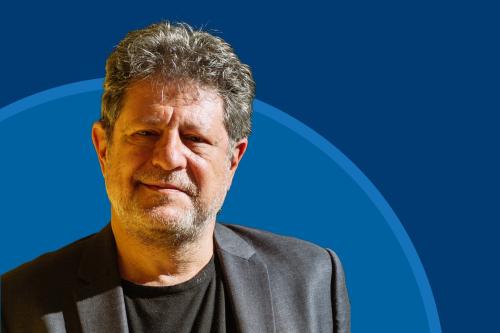

1:00 pm EST - 2:30 pm EST
Past Event
Content from the Brookings Doha Center is now archived. In September 2021, after 14 years of impactful partnership, Brookings and the Brookings Doha Center announced that they were ending their affiliation. The Brookings Doha Center is now the Middle East Council on Global Affairs, a separate public policy institution based in Qatar.
On November 25, 2010, the Brookings Doha Center hosted a joint policy discussion with Qatar University (QU) at the QU campus featuring James Wolfensohn, founder of the Wolfensohn Center for Development at the Brookings Institution and chairman of Wolfensohn & Company, LLC, as well as former president of the World Bank. The talk was introduced by BDC Director Salman Shaikh and was moderated by Dr. Shaikha Bint Jabor Al-Thani, vice president and chief academic officer of QU and a leading Qatari educator. Wolfensohn’s address dealt with the need to provide education that will adequately prepare the Middle East’s growing youth population for the labor market. The event featured a lively question and answer period and was attended by members of Qatar’s academic, business, diplomatic, and media communities.
Wolfensohn began the discussion by speaking about the Wolfensohn Center’s work on the topic of enhancing education opportunities for the Middle East’s youth. He said that he was surprised to find that, upon founding the Middle East Youth Initiative (MEYI) as part of the Wolfensohn Center, very little had been done on a regional basis to solve the region-wide problem of education and youth unemployment. Despite the fact that some 60 percent of the region is under the age of 25 and that youth unemployment stands at 25 percent, the highest in any region, Wolfensohn said that these issues have been examined only at the national level. Even at this level, however, he claimed that there has been “little drawing out of common lessons” in attempts to address problems of education. Although MEYI has done a great deal in its three years in operation and has become a well-known source of information on Middle East youth, Wolfensohn believes that “it is limited to have this subject focused in Washington, DC. It should be run in the region.”
Wolfensohn went on to explain that the issue of linking education with labor market opportunities is not just an economic problem, it also puts a great deal of stress on society in general, thus threatening the region’s stability. The problem needs to be examined, he said, not only from the academic perspective, but also from a practical standpoint. Students need access to education that will best serve them in the workforce in order to prevent massive unemployment. Wolfensohn stressed that while his organization is “putting the facts on the table,” it needs regional insight and initiatives to make a real impact on the ground.
Following Wolfensohn’s presentation, a question and answer session covered a range of topics, including the role of the World Bank in addressing labor issues, the prominence of expatriates in the region’s job market, and the importance of encouraging education as well as entrepreneurship. One audience member asked who was responsible for the lack of coordination in addressing the regional problem; to which Wolfensohn responded that ultimately, it is people in the region who need to determine how best to solve it. He went on to say that, with globalization making borders increasingly irrelevant, a problem in any one country could potentially destabilize the entire region which is why the issue should be dealt with on a regional basis. “It’s a question for you, not for me.”, he explained.
When asked about what criteria could help solve the matter in the near future. Wolfensohn stressed that along with education, entrepreneurship and industry also need to be promoted in society at large as this could help facilitate the flow of students into particular businesses. On this point, Dr. Shaikha Al-Thani highlighted the role of Qatari institutions, like QU, whose goal is to help graduates find jobs within six months of their graduation. She also cited Silatech as a major contributor to creating solutions for youth unemployment. “Ultimately, Dr. Shaikha said, there is an issue of youth wanting the government to provide them with jobs rather than creating them independently”.
One audience member asked whether technical training programs could help diminish youth unemployment in the region. Wolfensohn answered that attention needs to be given to technical training, not only in the Middle East but in the United States as well. He explained, “the aspiration level and the need are not balanced … because many people do not want their children to be blue collar workers for social reasons, they do not send them to professional training centers, and there is a lack of certain types of workers in the region. In his words, “you cannot get a plumber but you can get a neurosurgeon.”
1:00 pm - 2:30 pm
On November 25, 2010, the Brookings Doha Center hosted a joint policy discussion with Qatar University on the region-wide problem of education and youth unemployment.

Emma Phillips
December 19, 2024

Sarah Reber
December 11, 2024

Esther Lee Rosen, Eduardo Levy Yeyati
November 21, 2024